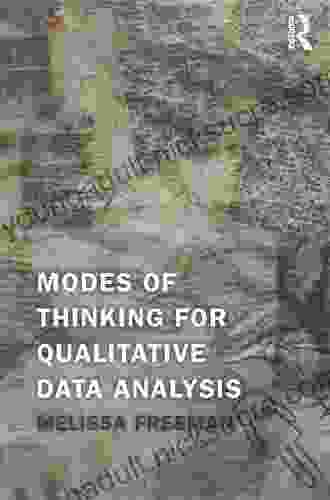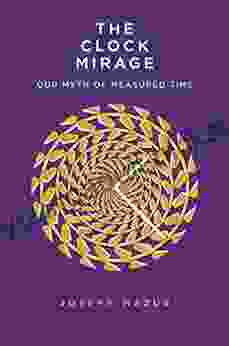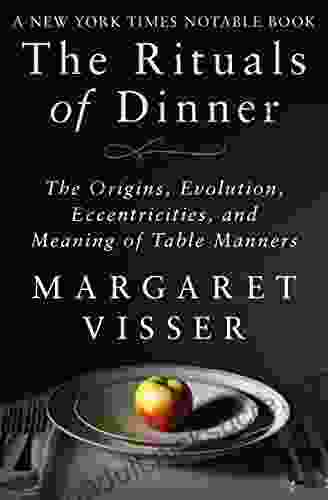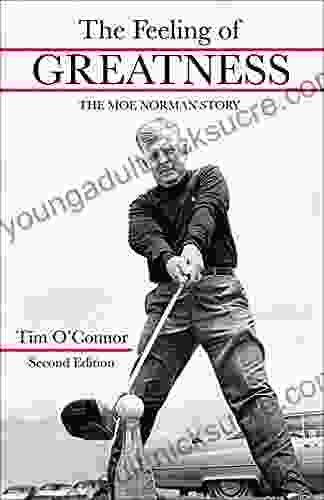The Clock Mirage: Our Myth of Measured Time

Time is a concept that has fascinated and puzzled humans for centuries. We measure it, we mark it, and we try to control it, but what is it, really? Is it a real thing, or is it just an illusion? Do we create time, or does time create us?
4.1 out of 5
| Language | : | English |
| File size | : | 2574 KB |
| Text-to-Speech | : | Enabled |
| Screen Reader | : | Supported |
| Enhanced typesetting | : | Enabled |
| Word Wise | : | Enabled |
| Print length | : | 269 pages |
In this article, we'll explore the history of timekeeping, the different ways we measure it, and the ways in which our perception of time can be distorted. We'll also discuss the implications of our obsession with time and how we can learn to live in the present moment.
The History of Timekeeping
The history of timekeeping is a long and complex one. The earliest known timekeeping devices were sundials, which were invented in ancient Egypt around 3500 BC. Sundials worked by measuring the angle of the sun's rays, and they were used to tell the time of day.
Water clocks were another early type of timekeeping device. Water clocks worked by measuring the flow of water from one container to another. The rate of flow was controlled by a hole in the bottom of the upper container, and the amount of water that flowed out was measured by markings on the side of the lower container.
Candle clocks were another type of early timekeeping device. Candle clocks worked by measuring the length of time it took for a candle to burn down. The candle was marked with lines at regular intervals, and the time was measured by the number of lines that were burned.
Mechanical clocks were invented in the 13th century. Mechanical clocks worked by using a weight to drive a series of gears. The gears turned a hand that moved around a dial, and the time was measured by the position of the hand.
Pendulum clocks were invented in the 17th century. Pendulum clocks worked by using a pendulum to regulate the movement of the gears. Pendulum clocks were more accurate than mechanical clocks, and they were used for many years to keep time.
Quartz clocks were invented in the 20th century. Quartz clocks worked by using a quartz crystal to regulate the movement of the gears. Quartz clocks were more accurate than pendulum clocks, and they are now the most common type of timekeeping device.
The Different Ways We Measure Time
There are many different ways to measure time. Some of the most common methods include:
- Seconds: A second is the base unit of time in the International System of Units (SI). One second is defined as 9,192,631,770 periods of the radiation corresponding to the transition between the two hyperfine levels of the ground state of the cesium-133 atom.
- Minutes: A minute is equal to 60 seconds.
- Hours: An hour is equal to 60 minutes.
- Days: A day is equal to 24 hours.
- Weeks: A week is equal to 7 days.
- Months: A month is equal to 28, 29, 30, or 31 days.
- Years: A year is equal to 365 days (or 366 days in a leap year).
The Perception of Time
Our perception of time can be distorted by a number of factors, including our age, our mood, and our expectations. For example, time seems to pass more slowly when we are bored, and it seems to pass more quickly when we are having fun.
Our perception of time can also be distorted by our surroundings. For example, time seems to pass more slowly in a dark room than it does in a well-lit room.
The way we measure time can also affect our perception of time. For example, time seems to pass more quickly when we are using a digital clock than when we are using an analog clock.
Our perception of time is a complex and fascinating thing. It is a product of our biology, our psychology, and our environment.
The Implications of Our Obsession with Time
Our obsession with time has a number of implications. First, it can lead to anxiety and stress. We are constantly worried about running out of time, and we feel like we never have enough time to do everything we want to do.
Second, our obsession with time can lead to us missing out on the present moment. We are so focused on the future that we forget to enjoy the present.
Third, our obsession with time can lead to us making bad decisions. We often make decisions based on our fear of running out of time, and these decisions are not always in our best interests.
It is important to remember that time is not a real thing. It is just an illusion that we have created. We can choose to let time control us, or we can choose to control time.
If we want to live a more fulfilling life, we need to learn to live in the present moment. We need to stop worrying about the future and start enjoying the present.
How to Live in the Present Moment
There are a number of things we can do to live in the present moment. Some of the most effective include:
- Pay attention to your breath. When you focus on your breath, you are brought into the present moment.
- Meditate. Meditation is a great way to practice living in the present moment. When you meditate, you focus on your breath and let go of all distractions.
- Spend time in nature. Nature is a great way to connect with the present moment. When you spend time in nature, you can forget about your worries and just be present.
- Do something you enjoy. When you do something you enjoy, you are more likely to be present in the moment.
- Be grateful. Gratitude is a great way to focus on the present moment. When you are grateful, you appreciate the things you have right now.
Time is a powerful force, but it is not something that we need to control. We can choose to let time control us, or we can choose to control time. If we want to live a more fulfilling life, we need to learn to live in the present moment.
The clock mirage is a powerful illusion, but it is one that we can break. We can choose to live in the present moment, and we can choose to create a life that is full of meaning and purpose.
4.1 out of 5
| Language | : | English |
| File size | : | 2574 KB |
| Text-to-Speech | : | Enabled |
| Screen Reader | : | Supported |
| Enhanced typesetting | : | Enabled |
| Word Wise | : | Enabled |
| Print length | : | 269 pages |
Do you want to contribute by writing guest posts on this blog?
Please contact us and send us a resume of previous articles that you have written.
 Fiction
Fiction Non Fiction
Non Fiction Romance
Romance Mystery
Mystery Thriller
Thriller SciFi
SciFi Fantasy
Fantasy Horror
Horror Biography
Biography Selfhelp
Selfhelp Business
Business History
History Classics
Classics Poetry
Poetry Childrens
Childrens Young Adult
Young Adult Educational
Educational Cooking
Cooking Travel
Travel Lifestyle
Lifestyle Spirituality
Spirituality Health
Health Fitness
Fitness Technology
Technology Science
Science Arts
Arts Crafts
Crafts DIY
DIY Gardening
Gardening Petcare
Petcare Angelo Chiari
Angelo Chiari Forrest Maready
Forrest Maready Scott Meyer
Scott Meyer Andy Peloquin
Andy Peloquin Bob Clouser
Bob Clouser Wayne Mcghie
Wayne Mcghie Lin Wellford
Lin Wellford Robert Zubek
Robert Zubek Ron Douglas
Ron Douglas M J Fievre
M J Fievre Patrick Ejeke
Patrick Ejeke Shane O Mara
Shane O Mara Derek M Steinbacher
Derek M Steinbacher Robyn Ryle
Robyn Ryle Chef Maggie Chow
Chef Maggie Chow Massimo Florio
Massimo Florio Mary Pipher
Mary Pipher Kristen Jervis Cacka
Kristen Jervis Cacka Erin Moulton
Erin Moulton L S Boos
L S Boos George Johnson
George Johnson Belinda Norton
Belinda Norton Scott Turner
Scott Turner Margaret M Quinlan
Margaret M Quinlan Robert Dudley
Robert Dudley Donna Mott
Donna Mott Joy Williams
Joy Williams Dwight E Neuenschwander
Dwight E Neuenschwander Andrea Lankford
Andrea Lankford John C Maxwell
John C Maxwell Scott Alan Johnston
Scott Alan Johnston Eric Schmitz
Eric Schmitz Latonya J Trotter
Latonya J Trotter Nicholas Jubber
Nicholas Jubber G K Derosa
G K Derosa Kim West
Kim West Jeff Mach
Jeff Mach Ruby Lang
Ruby Lang Julia Reed
Julia Reed Ellen J Langer
Ellen J Langer Tom Allen
Tom Allen Nikki Ace
Nikki Ace Sylvester Nemes
Sylvester Nemes T R Fehrenbach
T R Fehrenbach Johnson Egonmwan
Johnson Egonmwan Warren Sande
Warren Sande Jim Saccomano
Jim Saccomano Mike Chambers
Mike Chambers Sharon Strand Ellison
Sharon Strand Ellison Robert Urban
Robert Urban Karen Elliott House
Karen Elliott House Emily Nielson
Emily Nielson Margaret Jordan Halter
Margaret Jordan Halter K Moriyasu
K Moriyasu Judith Hoare
Judith Hoare Jorge Ramos Mizael
Jorge Ramos Mizael Erich Fromm
Erich Fromm Deborah Wall
Deborah Wall Emma Dalton
Emma Dalton Joel J Lerner
Joel J Lerner Kate Le Roux
Kate Le Roux Rodney Paul
Rodney Paul Leonard Lueras
Leonard Lueras Samir P Desai
Samir P Desai Michael Anthony
Michael Anthony Tina Nelson
Tina Nelson Ryan D Agostino
Ryan D Agostino Ariel Henley
Ariel Henley Jamie Kuykendall
Jamie Kuykendall Judith S Beck
Judith S Beck Angela Thayer
Angela Thayer Elly Molina
Elly Molina Ted Sandling
Ted Sandling Andy Tyson
Andy Tyson Dawn Griffiths
Dawn Griffiths Angelo Lowery
Angelo Lowery Rashaun Johnson
Rashaun Johnson Patrick M Lencioni
Patrick M Lencioni David E Jones
David E Jones Gregory J Davenport
Gregory J Davenport Eliot Schrefer
Eliot Schrefer Ashley Rickards
Ashley Rickards Richard G Brown
Richard G Brown Violet White
Violet White Elizabeth Kaledin
Elizabeth Kaledin Scott Stillman
Scott Stillman Richard Hibshman
Richard Hibshman Harry Fairhead
Harry Fairhead Capn Fatty Goodlander
Capn Fatty Goodlander Peter Gibson
Peter Gibson Ray Walker
Ray Walker Jim Prime
Jim Prime Michele Borba
Michele Borba Robin Benway
Robin Benway Andy Puddicombe
Andy Puddicombe Frank Deford
Frank Deford Joe Peta
Joe Peta Manik Joshi
Manik Joshi Dhonielle Clayton
Dhonielle Clayton Warren St John
Warren St John Linda Sivertsen
Linda Sivertsen Stacy Mccullough
Stacy Mccullough Christina Hillsberg
Christina Hillsberg Ben Campbell
Ben Campbell Lynn Lyons
Lynn Lyons Dennis Rainey
Dennis Rainey Katrina Cope
Katrina Cope Tovah Feldshuh
Tovah Feldshuh Susan Burton
Susan Burton Mandee Heller Adler
Mandee Heller Adler Bret A Moore
Bret A Moore Tara Sim
Tara Sim Joan Jacobs Brumberg
Joan Jacobs Brumberg Madeleine Roux
Madeleine Roux Seth Lloyd
Seth Lloyd Karl E Peace
Karl E Peace Jeffrey T Richelson
Jeffrey T Richelson Rebecca Serle
Rebecca Serle W Todd Woodard
W Todd Woodard Diana Winston
Diana Winston Mtg Editorial Board
Mtg Editorial Board Dave Smith
Dave Smith Michael Tomasello
Michael Tomasello John Samuel Barnett
John Samuel Barnett Jerry Toner
Jerry Toner Teresa Parker
Teresa Parker Chris Chelios
Chris Chelios Jessica Wolstenholm
Jessica Wolstenholm Matthew D Dewar
Matthew D Dewar Cheryl Alkon
Cheryl Alkon Tom Dymond
Tom Dymond Jo May
Jo May Kenneth R Ginsburg
Kenneth R Ginsburg Jeffrey Bernstein
Jeffrey Bernstein Christopher O Kennon
Christopher O Kennon Stefan Hunziker
Stefan Hunziker Jeff Fleischer
Jeff Fleischer Jodi Shabazz
Jodi Shabazz Sandy Tolan
Sandy Tolan Mark J Musser
Mark J Musser Rebecca Eanes
Rebecca Eanes Cap N Fatty Goodlander
Cap N Fatty Goodlander Chuck Weikert
Chuck Weikert Afra J Zomorodian
Afra J Zomorodian Alessio Mangoni
Alessio Mangoni Karen Sternheimer
Karen Sternheimer Tj Faultz
Tj Faultz Stewart Shapiro
Stewart Shapiro Chris Santella
Chris Santella Miranda Green
Miranda Green Tom Chatfield
Tom Chatfield Thais Nye Derich
Thais Nye Derich Lynn Palm
Lynn Palm Leanne Ely
Leanne Ely Ellen Frank
Ellen Frank Jenna Helwig
Jenna Helwig R E Burrillo
R E Burrillo Richard A Muller
Richard A Muller Rachel Kowert
Rachel Kowert John Geiger
John Geiger Ben Bleiweiss
Ben Bleiweiss Ashley P Martin
Ashley P Martin Tiara Mcclure
Tiara Mcclure Mark Synnott
Mark Synnott Arlin Smith
Arlin Smith Kevin Thomas
Kevin Thomas Jason Hogan
Jason Hogan Carlos Acevedo
Carlos Acevedo Rawdon Wyatt
Rawdon Wyatt Jeremy Klaff
Jeremy Klaff D M Davis
D M Davis Aaron Wilson
Aaron Wilson Cory Mortensen
Cory Mortensen Raynor Winn
Raynor Winn Oliver Burkeman
Oliver Burkeman Howard Davis
Howard Davis John Sonmez
John Sonmez Rebecca P Cohen
Rebecca P Cohen Angela Leslee
Angela Leslee Gillian Price
Gillian Price Jennifer Bohnet
Jennifer Bohnet Kari Marie Norgaard
Kari Marie Norgaard Greg Prato
Greg Prato Roland A Boucher
Roland A Boucher Rick Vaive
Rick Vaive Kathryn Miles
Kathryn Miles Tristan Higbee
Tristan Higbee Richard Lee Byers
Richard Lee Byers Kyle Graves
Kyle Graves Rebecca Solnit
Rebecca Solnit Pete Dunne
Pete Dunne Patrick Pickens
Patrick Pickens David Goodman
David Goodman Eugene P Northrop
Eugene P Northrop Carol Ann Gillespie
Carol Ann Gillespie Adam Skolnick
Adam Skolnick Margaret Visser
Margaret Visser Kevin J Gaston
Kevin J Gaston Ron Jeffries
Ron Jeffries United States Government Us Army
United States Government Us Army Germano Dalcielo
Germano Dalcielo Stephen Grossberg
Stephen Grossberg Charlotte Klaar Phd
Charlotte Klaar Phd Lisa Preston
Lisa Preston Andy Jurinko
Andy Jurinko J D Swanson
J D Swanson Jessica Nordell
Jessica Nordell Neveen Musa
Neveen Musa Diana Nyad
Diana Nyad John B Nici
John B Nici Angelo Tropea
Angelo Tropea Ruth Benedict
Ruth Benedict Wendy Rosenoff
Wendy Rosenoff Paul Cobley
Paul Cobley Jonathan Gottschall
Jonathan Gottschall James Quinn
James Quinn Ken Dryden
Ken Dryden Liv Ryan
Liv Ryan Tim Thayne
Tim Thayne Andy Crowe
Andy Crowe Anna Rashbrook
Anna Rashbrook Stephen Rea
Stephen Rea Kathy Freston
Kathy Freston Catherine Mccord
Catherine Mccord Daddilife Books
Daddilife Books Mitch Horowitz
Mitch Horowitz Bernd Heinrich
Bernd Heinrich Bill Schneider
Bill Schneider Donald N Yates
Donald N Yates Jenna Blough
Jenna Blough Troy A Hill
Troy A Hill Dave Gray
Dave Gray Elizabeth Hunter
Elizabeth Hunter Jeffrey Lee
Jeffrey Lee Madison Lee
Madison Lee Mirabai Starr
Mirabai Starr James M Johnston
James M Johnston Shreya Ramachandran
Shreya Ramachandran Andy Mitchell
Andy Mitchell Stephen Jungmann
Stephen Jungmann Johnny Molloy
Johnny Molloy Avinash Navlani
Avinash Navlani Hajime Isayama
Hajime Isayama David C Keehn
David C Keehn Murtaza Haider
Murtaza Haider Kelly Corrigan
Kelly Corrigan Dr Eva Beaulieu
Dr Eva Beaulieu Mark W Steege
Mark W Steege Angelina J Steffort
Angelina J Steffort Janet Menzies
Janet Menzies Mark Wells
Mark Wells Bob Swope
Bob Swope Dave Duncan
Dave Duncan Robyn Harding
Robyn Harding Keith Elliot Greenberg
Keith Elliot Greenberg William E Hearn
William E Hearn Tigran Bagdasaryan
Tigran Bagdasaryan Tanya Lee Stone
Tanya Lee Stone Shalabh Aggarwal
Shalabh Aggarwal Barak Ariel
Barak Ariel Devaki Lakshmi
Devaki Lakshmi Matt Vincent
Matt Vincent Joseph Mazur
Joseph Mazur Jay Matthews
Jay Matthews Keylee C Hargis
Keylee C Hargis Samuel B Green
Samuel B Green Tim Larkin
Tim Larkin Lois A Ritter
Lois A Ritter Stephanie Land
Stephanie Land Kim Dragoner
Kim Dragoner Muako Maepa
Muako Maepa Angela Eckhoff
Angela Eckhoff Florian Freistetter
Florian Freistetter Marilyn Burgos
Marilyn Burgos Robert Lindsay
Robert Lindsay Robin Yocum
Robin Yocum Siena Cherson Siegel
Siena Cherson Siegel William Bryant Logan
William Bryant Logan Jon Ronson
Jon Ronson Kristen S Kurland
Kristen S Kurland Angel Millar
Angel Millar Rodney Castleden
Rodney Castleden Tim O Connor
Tim O Connor Eli Wilson
Eli Wilson Marie Brennan
Marie Brennan Ryan Beck
Ryan Beck Gerard Siggins
Gerard Siggins Tim Hannigan
Tim Hannigan Jim Posewitz
Jim Posewitz Kat Anderson
Kat Anderson Alberta Hawse
Alberta Hawse Hourly History
Hourly History Lidia Bastianich
Lidia Bastianich Thomas Gilovich
Thomas Gilovich Angeline Boulley
Angeline Boulley Christopher Nyerges
Christopher Nyerges David Kinney
David Kinney Miles Olson
Miles Olson Lee Cronk
Lee Cronk Rebecca Hemmings
Rebecca Hemmings Louis Martin
Louis Martin Marie Myung Ok Lee
Marie Myung Ok Lee Nicholas Epley
Nicholas Epley Nicole Smith
Nicole Smith Peter Finch
Peter Finch Ben Ehrenreich
Ben Ehrenreich Steve Hindman
Steve Hindman Rachel Connelly
Rachel Connelly Charney Herst
Charney Herst Nick Bradley
Nick Bradley Mark Rosenman
Mark Rosenman Caryl Say
Caryl Say Natalie Rhodes
Natalie Rhodes Christian Wiggins
Christian Wiggins Kathy Hoopmann
Kathy Hoopmann George E Hein
George E Hein Alex Wolf
Alex Wolf Mercedes Pollmeier
Mercedes Pollmeier Jeffrey Thurston
Jeffrey Thurston Sam Fury
Sam Fury T L Payne
T L Payne Andy Schell
Andy Schell Joshua Clark
Joshua Clark Ed Stafford
Ed Stafford Mark Lester
Mark Lester Connie Schultz
Connie Schultz Donna Helen Crisp Jd Msn Rn Pmhcns Bc
Donna Helen Crisp Jd Msn Rn Pmhcns Bc Thomas Golf
Thomas Golf Donald R Prothero
Donald R Prothero Emiko Jean
Emiko Jean Joe Berardi
Joe Berardi Shenila Khoja Moolji
Shenila Khoja Moolji Jeanne Godfrey
Jeanne Godfrey Jules Brown
Jules Brown Harold S Koplewicz
Harold S Koplewicz Ryan Bow
Ryan Bow Neil Hawkesford
Neil Hawkesford Rafael Gordillo Naranjo
Rafael Gordillo Naranjo Bob Gordon
Bob Gordon George Megre
George Megre Nathaniel Rich
Nathaniel Rich Emily Souder
Emily Souder Kristina Statler
Kristina Statler Cate Tiernan
Cate Tiernan Meg Long
Meg Long Judea Pearl
Judea Pearl Wynne Foster
Wynne Foster Frederick Aardema
Frederick Aardema Mark Shepherd
Mark Shepherd Laura Bogen
Laura Bogen Schoolhouse Heaven
Schoolhouse Heaven Petros Efthymiou
Petros Efthymiou Michael Driscoll
Michael Driscoll Ingrid S Clay
Ingrid S Clay Daniel Friedmann
Daniel Friedmann Humberto G Garcia
Humberto G Garcia Tania N Shah
Tania N Shah Walter Beede
Walter Beede Guy Evans
Guy Evans Sandra Steingraber
Sandra Steingraber Serena B Miller
Serena B Miller Rachel Hutt Phd
Rachel Hutt Phd Tea Rozman Clark
Tea Rozman Clark Rod Powers
Rod Powers Chip Heath
Chip Heath Cynthia Nims
Cynthia Nims Irene Gut Opdyke
Irene Gut Opdyke Rosie Daley
Rosie Daley Angela Stancar Johnson
Angela Stancar Johnson Colby Coombs
Colby Coombs Douglas Henderson Jr
Douglas Henderson Jr Rob Willson
Rob Willson David Graeber
David Graeber Dan Ariely
Dan Ariely Beth A Leonard
Beth A Leonard Sir Edmund Hillary
Sir Edmund Hillary Angela C Wu
Angela C Wu Dan Heath
Dan Heath Joseph Phillips
Joseph Phillips Michael V Uschan
Michael V Uschan Bradley T Erford
Bradley T Erford Fredrik Backman
Fredrik Backman Jay Griffiths
Jay Griffiths Danil Zburivsky
Danil Zburivsky Christina Reese
Christina Reese Israelin Shockness
Israelin Shockness Karl Beecher
Karl Beecher S L Macgregor Mathers
S L Macgregor Mathers Elizabeth Foss
Elizabeth Foss Pete Sampras
Pete Sampras Tovar Cerulli
Tovar Cerulli Bradley Charbonneau
Bradley Charbonneau Sam Bleakley
Sam Bleakley Laura Hillman
Laura Hillman Angel Burns
Angel Burns Third Edition Kindle Edition
Third Edition Kindle Edition William D Lopez
William D Lopez Sabbithry Persad Mba
Sabbithry Persad Mba Stefanie K Johnson
Stefanie K Johnson Tim Macwelch
Tim Macwelch Dean Beaumont
Dean Beaumont Brian Cain
Brian Cain Lisa Marie Mercer
Lisa Marie Mercer Stephen Cheney
Stephen Cheney Jodi Picoult
Jodi Picoult Mark Verstegen
Mark Verstegen Mark Kernion
Mark Kernion Keith Crowley
Keith Crowley Angela Smith
Angela Smith Jenny Smith
Jenny Smith Richard Lemaster
Richard Lemaster Robin Ray Green
Robin Ray Green Andy Farrell
Andy Farrell Richard Bate
Richard Bate Lawrence Goldstone
Lawrence Goldstone Mark Remy
Mark Remy Chanel Craft Tanner
Chanel Craft Tanner Lutz Hanseroth
Lutz Hanseroth Carlo Rovelli
Carlo Rovelli Andy Dowsett
Andy Dowsett Caspar Melville
Caspar Melville George Noory
George Noory Rebecca Boggs Roberts
Rebecca Boggs Roberts Otto Rahn
Otto Rahn Lucy Postgate
Lucy Postgate Mometrix
Mometrix Lindsay Ford
Lindsay Ford Jane M Healy
Jane M Healy Christian Heath
Christian Heath Robb Manning
Robb Manning Baby Professor
Baby Professor William Ayers
William Ayers Nicholas D Kristof
Nicholas D Kristof Robert Kirk
Robert Kirk Martin Volken
Martin Volken Roger Craig
Roger Craig Howell Raines
Howell Raines Milton Roth
Milton Roth Jonah Lehrer
Jonah Lehrer Peter Townsend
Peter Townsend Rufus Estes
Rufus Estes Richard L Sites
Richard L Sites Tirzah Price
Tirzah Price Stuart Lawrence
Stuart Lawrence Marc Charles
Marc Charles Yuu Tanaka
Yuu Tanaka Kim Foley Mackinnon
Kim Foley Mackinnon Kevin Hunter
Kevin Hunter Jessica Jung
Jessica Jung Viviana Altuve
Viviana Altuve Stephen Lynch
Stephen Lynch Robyn Wideman
Robyn Wideman Phil Burt
Phil Burt Robert E Stake
Robert E Stake David Herres
David Herres Gary B Meisner
Gary B Meisner Yvonne Choquet Bruhat
Yvonne Choquet Bruhat Joyce Yang
Joyce Yang Barry Pickthall
Barry Pickthall Kent David Kelly
Kent David Kelly Jordan Summers
Jordan Summers
Light bulbAdvertise smarter! Our strategic ad space ensures maximum exposure. Reserve your spot today!

 Harold PowellGrow Your Own Tree Hugger: A Comprehensive Guide to Nurturing Environmental...
Harold PowellGrow Your Own Tree Hugger: A Comprehensive Guide to Nurturing Environmental... Yukio MishimaFollow ·18.6k
Yukio MishimaFollow ·18.6k Robert FrostFollow ·17.9k
Robert FrostFollow ·17.9k Craig BlairFollow ·11.5k
Craig BlairFollow ·11.5k Corbin PowellFollow ·9.5k
Corbin PowellFollow ·9.5k Troy SimmonsFollow ·8.5k
Troy SimmonsFollow ·8.5k Louis HayesFollow ·9.5k
Louis HayesFollow ·9.5k Avery SimmonsFollow ·9.6k
Avery SimmonsFollow ·9.6k Felipe BlairFollow ·13.3k
Felipe BlairFollow ·13.3k

 Devon Mitchell
Devon MitchellDelve into the Comprehensive World of Cartridges: A...
In the realm of firearms, cartridges stand...

 Joseph Conrad
Joseph ConradTales From The San Francisco 49ers Sideline: A Look...
The San Francisco 49ers are one of the most...

 Ervin Bell
Ervin BellArcGIS Desktop 10: A Comprehensive GIS Tutorial for...
Geographic information...

 Reed Mitchell
Reed MitchellPhysiology Pretest Self Assessment And Review 14th...
Accurately gauge your physiology knowledge and...

 Devin Ross
Devin RossLost At Sea: The Unbelievable True Story of the Jon...
In 2009, journalist Jon Ronson set out to...

 Shane Blair
Shane BlairModes of Thinking for Qualitative Data Analysis
Qualitative data analysis is a complex...
4.1 out of 5
| Language | : | English |
| File size | : | 2574 KB |
| Text-to-Speech | : | Enabled |
| Screen Reader | : | Supported |
| Enhanced typesetting | : | Enabled |
| Word Wise | : | Enabled |
| Print length | : | 269 pages |










